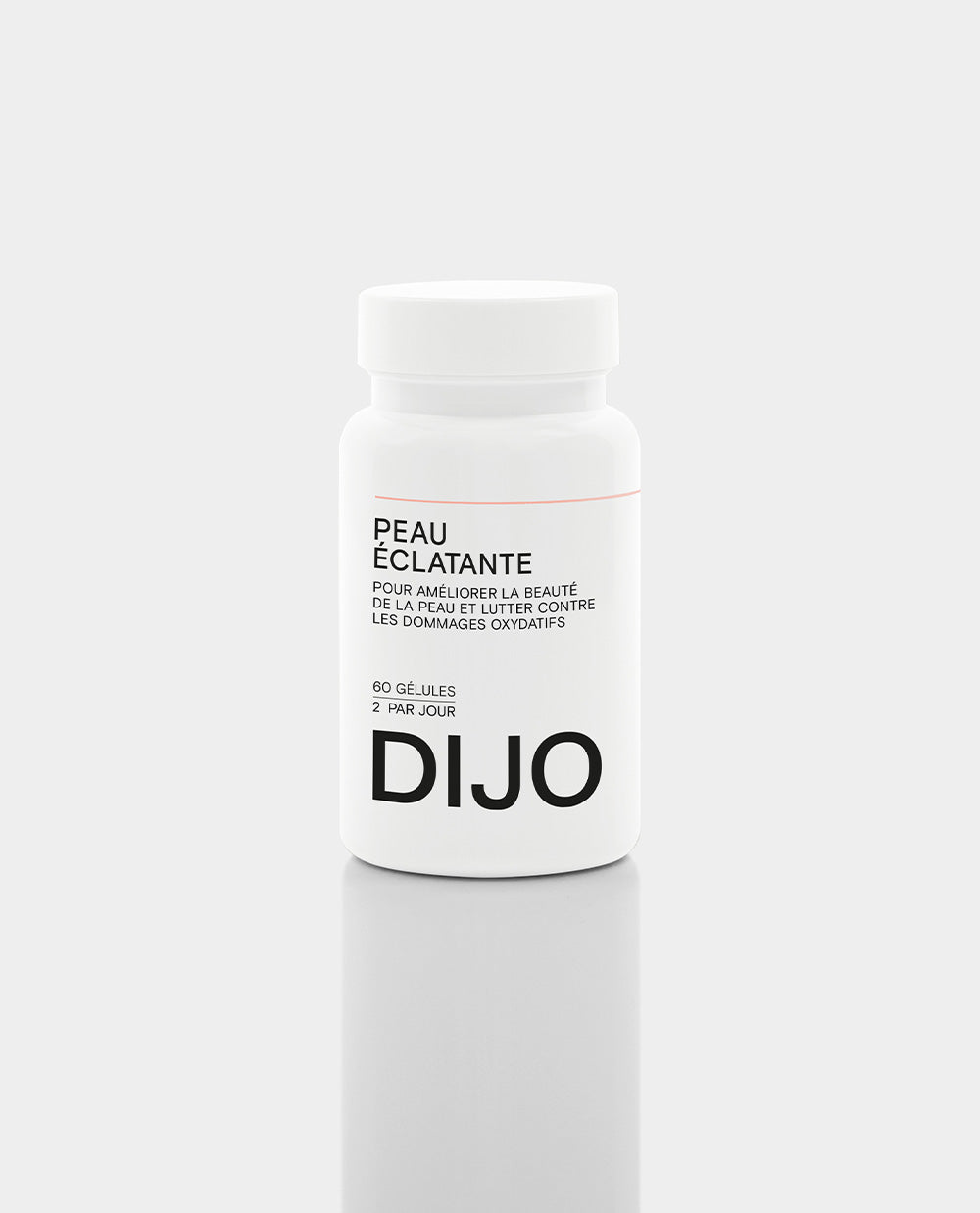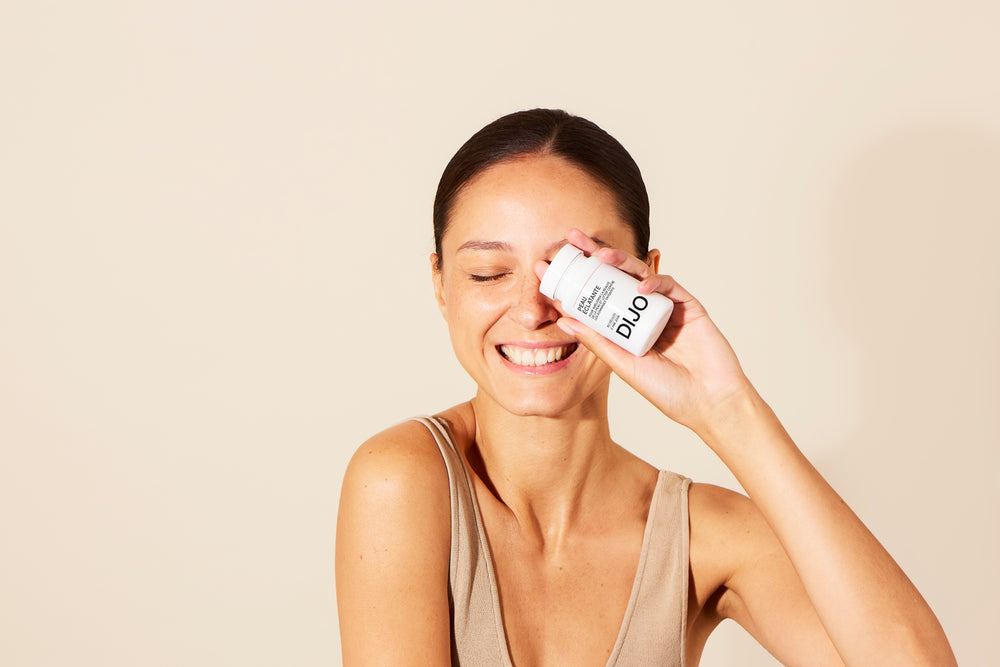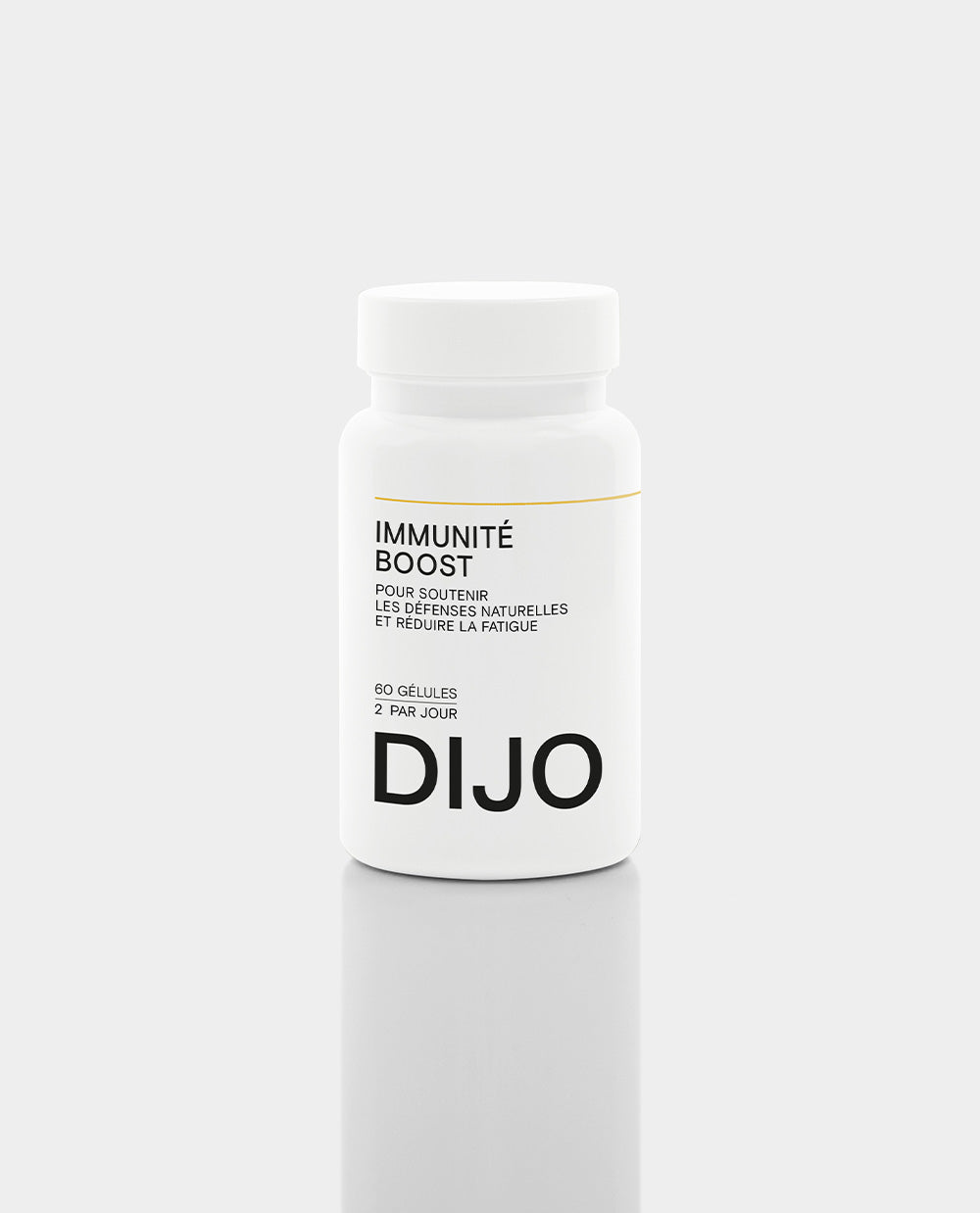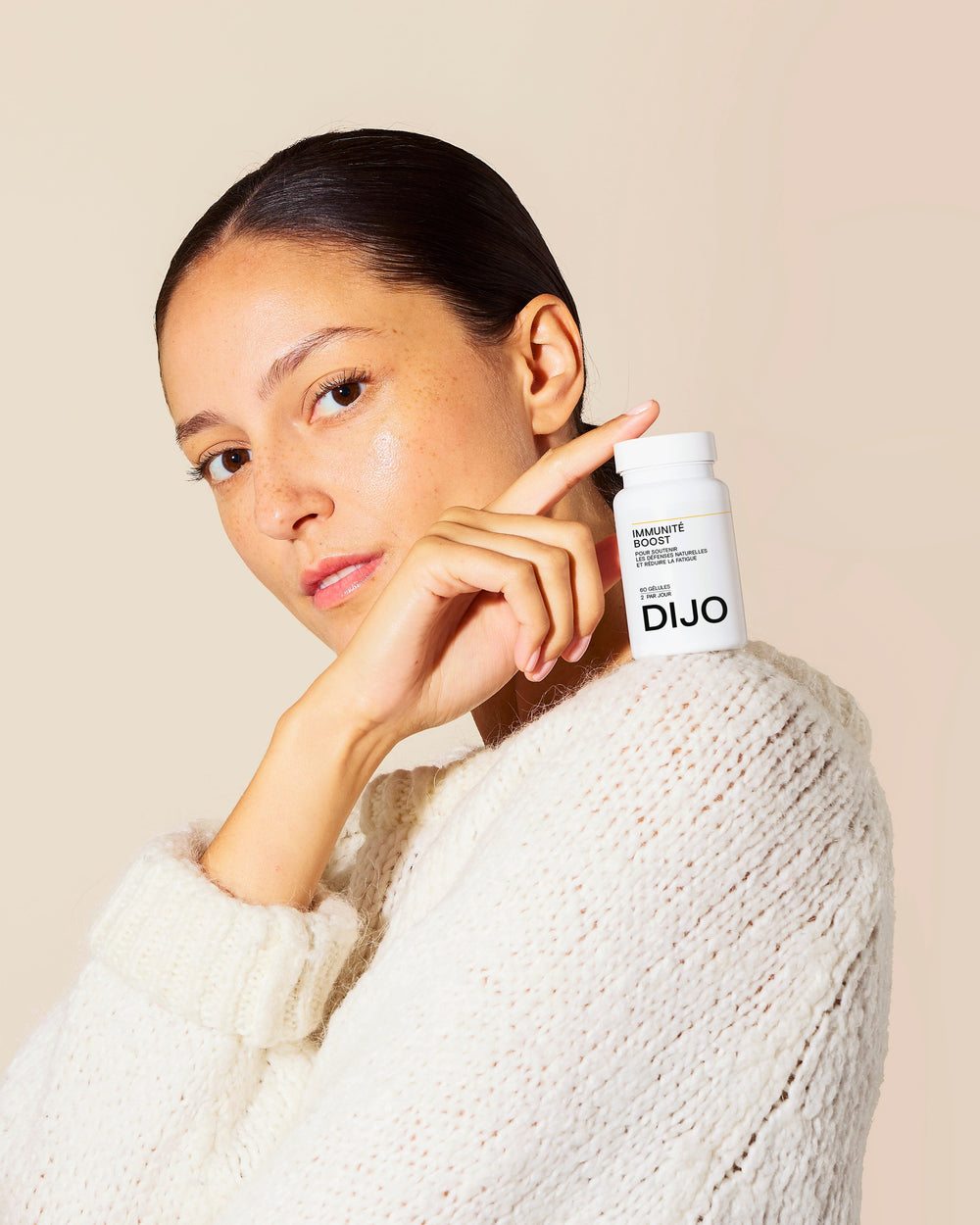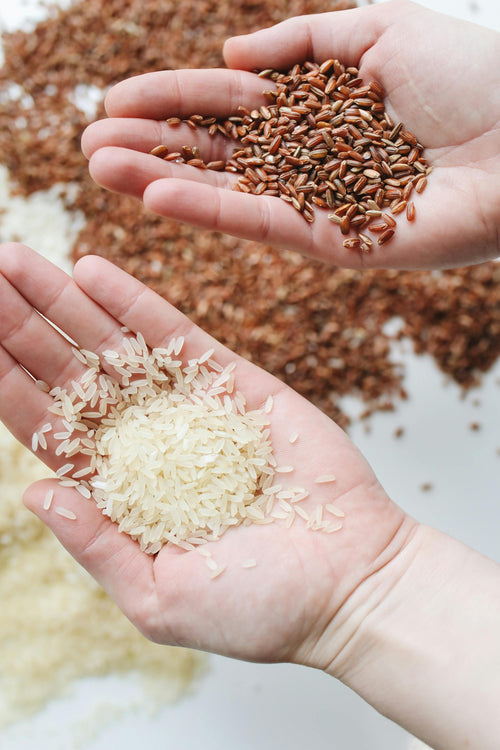What you must remember :
- Vitamin C is essential for life and is a powerful water-soluble antioxidant.
- Vitamin C, a beauty active ingredient with multiple benefits: anti-aging, healing and anti-imperfections.
- Vitamin C promotes the natural synthesis of collagen, the most abundant structural protein in our body.
- Vitamin C boosts our immune defenses by stimulating the production of white blood cells.
What is vitamin C?
Definition of Vitamin C
Vitamin C, otherwise called ascorbic acid (or ascorbate) is an essential vitamin that is soluble in water. Vitamins are said to be essential because they are essential for the proper functioning of our body, which does not store them or synthesize them naturally. Therefore, it is necessary to obtain the recommended daily dose of this vital vitamin through diet or supplements to maintain good health.
Sources of vitamin C
Vitamin C, or ascorbic acid, occurs naturally in some colorful fruits and vegetables , including black currants, guava, cherries, bell peppers, parsley, and broccoli . Generally, the recommended consumption of 5 fruits and vegetables per day meets the daily requirement.
However, this fragile vitamin is sensitive to air, heat and water. The vitamin C in fruits and vegetables begins to break down when they are harvested, then is destroyed when they are cooked at high temperatures or in boiling water. So, with our modern consumption patterns, it is difficult to imagine consuming fresh, raw fruits and vegetables every day.
What are the benefits of vitamin C?
Mainly known for its antioxidant role, vitamin C plays a crucial role in many biological functions and offers a multitude of health benefits.
Vitamin C and anti-oxidant properties
Vitamin C is mainly recognized for its powerful anti-oxidant power. Antioxidants represent a set of neutral molecules capable of protecting cells against oxidative stress. Oxidative stress is the set of attacks caused by free radicals, unstable molecules derived from oxygen, to the cells of our body.
To neutralize free radicals , our body needs antioxidants like vitamin C, which visibly limits cell degeneration and aging. Thus, vitamin C provides a protective role for cells and tissues by capturing these free radicals.
Vitamin C and skin
Vitamin C is also considered a beauty active ingredient with multiple benefits. Indeed, it is involved in the healing process and the synthesis of collagen , the most abundant structural protein in our body, particularly in the skin . Just likehyaluronic acid , the natural production of collagen decreases with age and it then becomes crucial to replenish these concentrations which weaken over time.
Exposure to oxidative stress and external factors such as UV radiation, pollution and tobacco visibly accelerate skin aging. These multiple attacks damage the collagen fibers naturally present in the epidermis and degrade the structure of the skin. Hence the interest in anti-oxidants such as vitamin C which neutralize free radicals, limit cellular degeneration and visibly slow down the first signs of aging.
Beyond its anti-aging benefits, the antioxidant power of vitamin C also fights hyperpigmentation. In fact, it protects melanin, the skin pigment, from damage caused by free radicals. Vitamin C helps to reduce dark spots by giving a boost of radiance to dark areas of the face, to provide a more uniform and radiant complexion
Vitamin C and iron absorption
Vitamin C also facilitates the absorption of iron by the small intestine during digestion and reduces the risk of anemia .
Iron is a trace element essential for many physiological functions including oxygenation of the body. Indeed, iron is an essential constituent of hemoglobin, a protein whose main role is to transport oxygen in the body within red blood cells. Thus, vitamin C, associated with good absorption of iron, improves the production of red blood cells and the circulation of oxygen in the tissues, which helps reduce fatigue.
Vitamin C and the immune system
Vitamin C plays a key role in strengthening the immune system and contributes to its proper functioning. In fact, it stimulates the production of white blood cells , the defenders of our body.
In addition, sufficient vitamin C intake can reduce the severity of symptoms and reduce the duration of respiratory infections (asthma, cough). Finally, vitamin C is recognized for its anti-stress action, which further boosts our immune defenses.
Indications and dosage of Vitamin C
The severe vitamin C deficiency responsible for scurvy is a disease that has almost disappeared today. Health authorities recommend aiming for a daily dose of 90 milligrams of vitamin C per day for a healthy adult. However, when needs are increased in certain cases, it is interesting to supplement with vitamin C. This is particularly the case in people with chronic illnesses, in times of intense stress and during pregnancy and breastfeeding. Seniors, athletes and smokers are also affected.
If the dosage is respected, vitamin C does not cause any unwanted side effects. However, in high doses, it can cause nausea and stomach aches.
In people with kidney problems, consuming a very high dose of vitamin C may worsen their conditions. If you are taking medical treatment, it is important to seek advice from your doctor before taking supplements.
Bring vitamin C to your body thanks to DIJO
At DIJO, we are committed to supporting you in your well-being care routines. This is why we developed Focus Peau , a product based on prebiotics and compounds essential for maintaining the beauty of the skin .
In this product, you will find marine collagen , a specific collagen which acts on the support and firmness functions of your skin, combined with vitamin C, for optimal effectiveness.
Whether to improve skin hydration, reduce imperfections, reduce the first signs of aging or strengthen joint mobility, this treatment offers you a natural approach for your overall well-being.
Sources :
[1] Carr, A.C., & Maggini, S. (2017). Vitamin C and immune function. Nutrients , 9 (11), 1211.
[2] Njus, D., Kelley, PM, Tu, YJ, & Schlegel, HB (2020). Ascorbic acid: The chemistry underlying its antioxidant properties. Free Radical Biology and Medicine , 159 , 37-43.
[3] Pacier, C., & Martirosyan, D.M. (2015). Vitamin C: optimal dosages, supplementation and use in disease prevention. Functional Foods in Health and Disease , 5 (3), 89-107.
[4] Padayatty, SJ, Katz, A., Wang, Y., Eck, P., Kwon, O., Lee, JH, ... & Levine, M. (2003). Vitamin C as an antioxidant: evaluation of its role in disease prevention. Journal of the American college of Nutrition , 22 (1), 18-35.
[5] Pullar, J.M., Carr, A.C., & Vissers, M. (2017). The roles of vitamin C in skin health. Nutrients , 9 (8), 866.
[6] Ciqual Table, ANSES, 2023 ( Ciqual, ANSES, Vitamin C )












